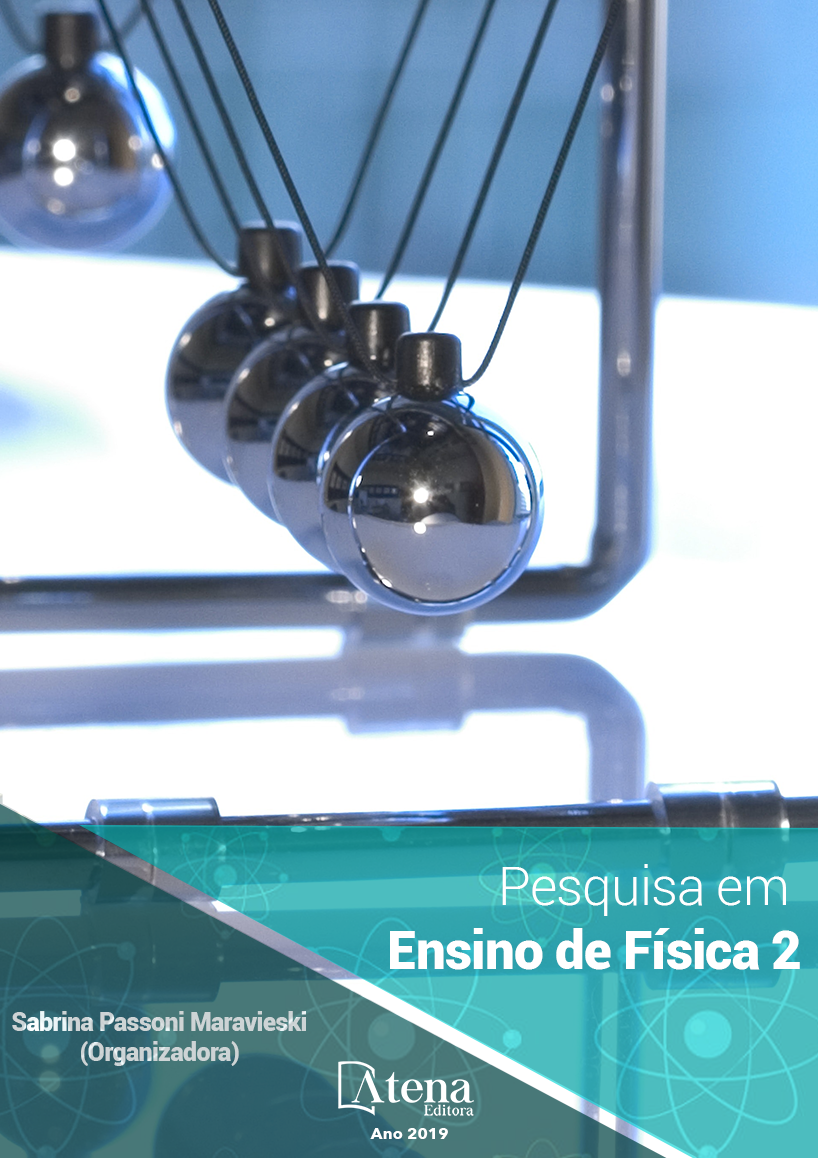
SALA DE AULA DE CIÊNCIAS: O QUE UM SIMPLES DEBATE EM SALA DE AULA PODE DIZER DO ENSINO DE FÍSICA?
O presente trabalho objetivou
apresentar uma abordagem dialogada acerca
da poluição sonora possibilitando uma reflexão
sobre metodologia de sala de aula através
das discussões realizadas pelos alunos no
decorrer da leitura guiada de um artigo. Esse
tema foi escolhido pela proximidade dos
alunos para com esses eventos e, em sua
maioria, total desconhecimento dos efeitos
nocivos que pode ser causado por ela. Isso foi
feito a partir de um recorte de uma sequência
didática, onde se privilegiou o uso de um artigo
informativo, com caráter de divulgação de
aspectos relacionados à poluição sonora, nos
quais os alunos foram estimulados a refletir
em como as atitudes cotidianas e o convívio
social em geral expõem as pessoas a um
excesso de ruído. Dessa forma, possibilitando
que os alunos percebessem esse fenômeno
no seu cotidiano, através de uma abordagem
não tradicional. Antes dessa apresentação,
foram trabalhados os conteúdos anteriores de
acústica e ondulatória, para uma discussão
satisfatória. Após esse momento, os alunos
foram estimulados a fazer medições sonoras
nos ambientes que frequentavam diariamente
e analisassem os dados obtidos por essas
medições, posteriormente entregando um texto
com essas reflexões. A pesquisa é de natureza
qualitativa, por meio de áudios gravados em
sala, que se enfatiza a reflexão pelo processo
da sala de aula e por impressões dos alunos
para que se possa, em seguida, discutir o papel
da potencialidade de metodologias alternativas.
Através dessas reflexões, dialoga-se sobre a
importância dessas metodologias e perguntase de que forma ela podem ser modificantes
para o estudante.
SALA DE AULA DE CIÊNCIAS: O QUE UM SIMPLES DEBATE EM SALA DE AULA PODE DIZER DO ENSINO DE FÍSICA?
-
DOI: 10.22533/at.ed.10419280322
-
Palavras-chave: ensino de física; poluição sonora, aula dialogada.
-
Keywords: physics teaching; noise pollution; dialogic class.
-
Abstract:
This study aimed to present a
dialogue-based approach about noise pollution
allowing a reflection about the methodology
on the classroom through discussions by the
students during a guided reading of an article.
This theme was chosen by the proximity of the
students towards these events and, in most
cases, completely unaware of the harmful effects
that can be caused by it. This was made from a fragment of a didactic sequence where
privileged the use of an informative article with aspects of divulgation of the character
related to noise pollution, in which students form encouraged to reflect on how the
everyday attitudes and social conviviality generally expose people to excessive noise.
In this way, enabling students to realize this phenomenon in their daily lives, through a
non-traditional approach. Before guided reading, the previous contents were worked
acoustic and waves, subjects with major importance to understand why the noise
pollution mugs the hearing, that action allows a better argued discussion. After this
time, the students were encouraged to make sound measurements in environments
frequented daily and analyze the data obtained by these measurements, later delivering
a text with these reflections. The research is qualitative, through audio recorded in
room, which emphasizes the reflection at the classroom process and impressions
of the students so that we can then discuss the role of the potential of alternative
methodologies. Through these reflections, dialogue about on the importance of these
methodologies and ask how it can be modifiers for the student.
-
Número de páginas: 15
- Lucas Jesus Bettiol Mazeti
- Ana Lúcia Brandl
- Fernanda Keila Marinho da Silva


